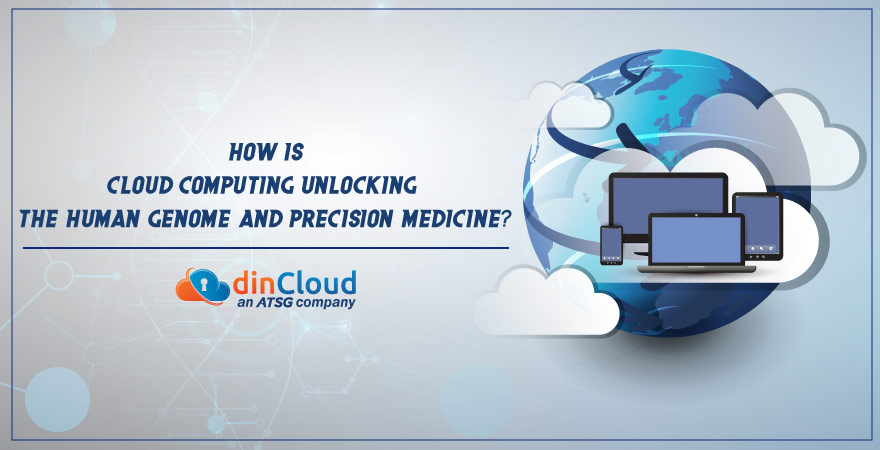One of the most complex creations of this vast universe is by far the human body itself. It is such a complex interaction of chemicals, minerals and neurological constituents that even science is baffled by the sheer diversity within the human race.
Traditionally, medical and life sciences have adopted a “one size fits all” approach. For instance, if you are diagnosed with a certain type of diabetes, the course of treatment would be pretty standard for nearly every patient.
However, this is no more an efficient approach to delivering healthcare. Firstly, the world population is touching astronomical levels and with every passing day, delivery of efficient healthcare is proving an insurmountable challenge for even the developed economies.

Secondly, the consumer, or patient in the specific context of healthcare, now expects a much more personalized delivery of healthcare. Therefore, this is a course of action that stands to benefit both healthcare providers and patients alike.
Related: Quarterly Roundup: Healthcare Industry Digital Technology Resources
The Era of Precision Healthcare
As the name suggests, we find ourselves at the verge of a whole new era in the realm of healthcare delivery. This phenomenon is broadly referred to as “precision healthcare”. Under this new concept, the treatment will be personalized to every individual patient.
Instead of adoption a generic course of treatment, precision medicine would simultaneously take into account a patient’s age, gender, race, ethnic background and most importantly, how a patient has spent the years leading up to a chronic medical condition.
Even by today’s standards, this is an overwhelming combination of information, involving a very complex and diverse dataset. In the field of precision medicine, the one element of the human body that can deliver the bulk of these insights is the “human genome”.
Related: Digital Transformation in the Healthcare Industry
The Roadblocks to Studying Human Genome
As discussed earlier, the biggest roadblock to studying the human genome has been the sheer amount, and diversity of the data a single human genome constitutes. For a better understanding, a single human genome sequence creates 200 gigabytes of raw data.
This is just the raw data we are talking about here, and it is just the first step towards precision medicine. This vast dataset needs to be collected, stored, consolidated, processed and most importantly, patient specific insights need to be drawn from this entire exercise.
Traditionally, when medical and life sciences experts study the human genomic data, or some parts of it, they do so in isolation. Most standalone systems are just not capable to absorb, process and draw conclusions from such a complex dataset.
Secondly, the human genomic data is of little use when studied in isolation. This genomic data needs to be consolidated and correlated against chronic patients with similar signs of illnesses, but with different underlying circumstances leading up to the disease.
This in turn will reveal the real insights to medical experts regarding the causes, and most effective courses of treatment for chronic medical conditions.
Related: Healthcare to Remain a Prime Target for Ransomware in 2022
Cloud and AI – Making Genomic Medicine a Reality
The one technology that is spearheading mankind’s journey towards precision / genomic medicine is Cloud Computing. By leveraging the immense storage and processing muscle of the Cloud, healthcare and life sciences experts will be able to consolidate genomic data.
By correlating the genomic data of several thousand patients with the same medical condition, researchers will be able to identify the true root causes of the disease, its stages of progression and most importantly, suggesting a patient specific remedy / treatment.
Another technology that will aid Cloud Computing in making genomic medicine a reality is Artificial Intelligence (AI). By leveraging the power of AI, researchers will be able to evolve medicine and healthcare into a preventive, rather than reactive domain.
AI Based Predictive Healthcare Models
By combining Cloud Computing and Artificial Intelligence (AI), healthcare providers will be able to monitor the key threshold levels of the human population for the imminent development of a severe medical condition, say a cancer, kidney or heart disease.
Such diseases are not only very painful and traumatic for the patient and loved ones, but are also a huge burden on the federal and state healthcare systems, gulping up millions and billions of taxpayer’s dollars.
Related: Advantages & Disadvantages of Cloud Computing In HealthCare
When this era of precision medicine achieves fruition, healthcare providing institutions will be able to preempt, or contain various chronic diseases at very initial stages. This in turn will be a highly beneficial scenario for the healthcare system, and the patients.
Conclusion
Precision / genomic medicine stands to revolutionize global healthcare, within the coming years. Technologies like Cloud Computing and Artificial Intelligence (AI) will turn out to be the key enablers for this groundbreaking development.
dinCloud, an ATSG company, feels it may also have a part to play in this revolution, through its secure, reliable and regulatory compliant Cloud Computing solutions and services.


